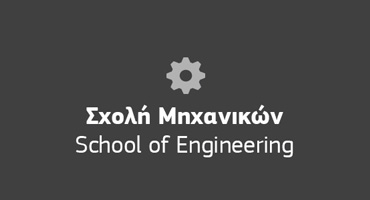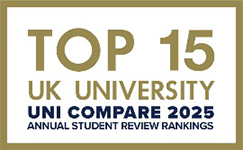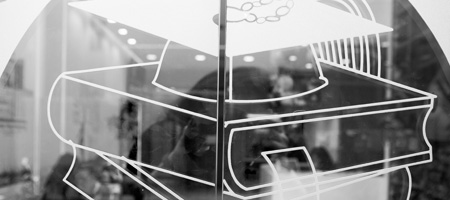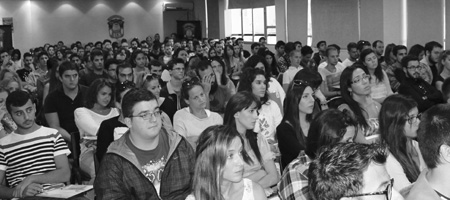





MEng / BEng (Hons) Marine Engineering
-
Renowned degree from a TOP-50 UK University.
-
Five-year study program.
-
Internship with shipping companies & professionals.
-
Accreditation in both the UK & Greece.

Course Information
The five-year Marine Engineering (MEng / BEng Hons) program, offered by Mediterranean College in collaboration with the British University of Derby, is an innovative course fully aligned with the current demands of the maritime and shipbuilding industries. The program covers the full spectrum of marine engineering, emphasizing propulsion systems, auxiliary mechanical systems, marine electrical engineering, systems control, and emerging green shipping technologies (such as hydrogen and hybrid propulsion).
The program is taught in Greek for the first two years and in English from the third year onward, preparing students for an international professional career.
What will you learn?
- Marine Systems Design and Analysis: You will gain deep knowledge in hydrostatics, stability, and ship mechanical equipment.
- Advanced Computational Tools: You will use software for CFD (Computational Fluid Dynamics), CAD, and systems simulations.
- Thermodynamics, Fluid Mechanics & Combustion: You will understand the operation of internal combustion engines and ship thermal systems.
- Ship Electrotechnics & Automation: You will analyze and manage the ship’s electrical systems and automation.
- Green Shipping Technologies: You will study sustainable solutions such as hydrogen propulsion and hybrid propulsion systems.
- Research & Innovation: You will participate in interdisciplinary projects, developing solutions to real industry challenges.
Why choose it?
- British University Degree: An internationally recognized qualification from the University of Derby.
- Professional Recognition in Greece: Graduates can have their professional qualifications recognized according to European and Greek legislation.
- Full Coverage of the Maritime Sector: A unique program combining mechanical, electrical, and environmental technology in a maritime context.
- Career Prospects: Opportunities in shipping companies, shipyards, design offices, and international maritime organizations.
Year 1
Engineering Mathematics I
This module provides a strong foundation in essential mathematical concepts needed for engineering studies. It enhances basic skills in algebra, trigonometry, geometry, and introductory calculus, with an emphasis on practical engineering applications.
Scholarship for Technologists
The module “Scholarship for Technologists” develops critical skills such as organization, independent thinking, and technical communication. Students learn to research, analyze, and present technical data while gaining experience in IT tools and career development planning.
Engineering Design Project
Students work in teams to solve real engineering problems. The project enhances creative problem-solving, teamwork, and understanding of design processes in a realistic, professional context.
English for Study in Technology I
The module aims to improve students’ proficiency in English, focusing on academic and engineering terminology. It develops reading, writing, listening, and speaking skills within technological contexts.
Engineering Mechanics – Statics
Students learn to analyze and solve problems in static equilibrium, forces, and moments in mechanical systems. Topics include free body diagrams, force and moment distributions, and stresses in simple structures.
Engineering Science
This module introduces fundamental principles of mechanics, fluid mechanics, and electricity. It includes the study of motion, work, energy, and an introduction to electrical principles and their applications in mechanical systems.
Computer Aided Design I
Students become familiar with basic CAD tools for creating technical drawings. The module focuses on using layers, symbols, and precision tools, preparing students for more complex design applications.
English for Study in Technology II
A continuation of the first module, this module further develops students’ skills in understanding and producing academic and technical discourse in English, focusing on accuracy, coherence, and evidence-based expression.
Year 2
Engineering Mathematics II
This module strengthens students' mathematical abilities, providing essential tools for analyzing and solving complex engineering problems. Topics include advanced differential and integral calculus.
Strength of Materials
This module introduces fundamental principles of material behavior under various load conditions, essential for mechanical design. Students explore concepts of stress, strain, and elasticity in axial, torsional, and bending loads, including beam bending, thermal stress, failure theories, and material selection.
Programming with MATLAB
An introduction to programming using MATLAB. Students develop problem-solving and computational skills necessary for engineering, covering syntax, data types, control structures, functions, and visualization tools. Emphasis is placed on efficient scripting and function writing for modeling and technical analysis.
Ship Hydrostatics and Stability
The module covers key concepts related to the buoyancy and stability of ships. Students examine static equilibrium in calm waters, weight distribution, center of gravity, and metacentric height, as well as methods for assessing and calculating stability under normal and critical operating conditions.
Engineering Mathematics III
This module offers in-depth study of ordinary differential equations and their applications in scientific and engineering fields. Students learn methods for solving first- and higher-order equations, analytical and numerical techniques, and transformations. Applications include modeling mechanical oscillations and electrical circuits.
Computer Aided Design II
Building on fundamental CAD knowledge, this module focuses on advanced modeling techniques, parametric design, complex assemblies, and industrial applications. Students work with modern CAD/CAE tools, emphasizing optimization and collaboration in a professional environment.
English for Study in Technology III
This module enhances academic and technical English skills, focusing on understanding specialized texts and producing well-documented technical reports. Students practice advanced vocabulary and grammar in preparation for the program’s English-taught years.
Year 3
Applied Thermodynamics
This module expands upon fundamental thermodynamics by analyzing real systems related to energy conversion and heat transfer. Topics include gas and steam cycles, thermodynamic properties, and the performance of internal combustion engines, turbines, and heat exchangers with a focus on efficiency.
Fluid Mechanics
The module introduces the fundamentals of fluid mechanics and its engineering applications. Topics include fluid properties, hydrostatics, and fluid dynamics. Core subjects cover flow equations, pressure losses, dimensional analysis, and solving engineering flow problems.
Materials and Manufacturing Processes
This module focuses on key categories of engineering materials (metals, polymers, ceramics, composites) and their properties. It also introduces major manufacturing methods such as casting, material removal processes, welding, and additive manufacturing. Emphasis is placed on material selection based on load conditions, operating environment, durability, and the environmental impact of production.
Heat Transfer
An introduction to the fundamental principles and mechanisms of heat transfer — conduction, convection, and radiation — and their applications. Students learn to analyze steady and transient conduction, convective heat transfer in internal and external flows, and radiation exchange between surfaces. Key topics include thermal resistance networks, heat exchanger design, boundary layer theory, and empirical correlations for convective heat transfer.
Machine Elements and Design
This module introduces essential machine elements (gears, bearings, couplings, springs, shafts) and the basic principles of their design. Students apply load analysis and design tolerances to select and size critical mechanical components within functional and manufacturing constraints.
Internal Combustion Engines
An introduction to internal combustion engines (ICE), covering fundamental principles, design, and operation. Students study various engine types, thermodynamic cycles, fuel and combustion characteristics, and performance parameters. The module includes theoretical concepts and practical applications in marine engines.
Year 4
Independent Study and Personal Development (Marine Engineering)
This module guides students in producing a coherent and comprehensive research-based study, demonstrating their ability to develop and articulate complex, research-driven proposals within the field of Marine Engineering. Students address current challenges, technological developments, and emerging trends, ensuring their work reflects current industry issues.
Marine Propulsion Systems
This module provides in-depth knowledge of marine propulsion systems, which are fundamental for ship performance. It covers propulsion principles, including interactions between engines, propellers, and transmission systems, as well as factors affecting propulsion efficiency and performance.
Marine Electrical and Electronics Technology
This module offers advanced understanding of electrical and electronic systems vital to modern marine engineering. Students explore power generation, distribution, and protection systems on ships, including high-voltage networks, transformers, and circuit breakers. The module also covers electric propulsion, energy management, and marine electronic systems (navigation, communication, sensors, and automation).
Ship Auxiliary Machinery
This module provides in-depth study of auxiliary systems critical for the safe and efficient operation of ships. Students examine the design, operation, and integration of core ship systems, such as pumps, compressors, steering gear, HVAC, freshwater generation, ballast systems, and wastewater treatment. Emphasis is placed on energy efficiency, automation, and regulatory compliance.
Control Systems
This module explores the field of control systems, commonly implemented as closed-loop feedback installations used for regulation, adaptation, control, compensation, and modification of a primary unit’s behavior to meet specific requirements. Students analyze, model, and simulate such systems with applications in marine engineering and automation.
Year 5
Vibrations
This module introduces the fundamentals of mechanical vibrations and their application in marine systems and engineering environments. Students study the behavior of single and multi-degree-of-freedom systems, damping, excitation, and resonant response. Emphasis is placed on mathematical modeling, natural frequency analysis, and dynamic response evaluation with practical applications in marine engineering.
Computational Fluid Dynamics (CFD)
CFD represents the third pillar of fluid mechanics, alongside theoretical and experimental approaches. This module provides both theoretical and practical understanding of CFD fundamentals, including the Navier-Stokes equations, finite volume techniques, and numerical flow modeling. Students use commercial CFD software packages to simulate and analyze flow in marine and engineering systems.
Environmental Impact and Regulations for the Shipping Industry
This module provides in-depth understanding of the environmental challenges facing the shipping industry and the related regulatory framework. Topics include the impact of shipping activities on marine ecosystems, international regulations (e.g., MARPOL), emission reduction technologies, and alternative fuels. Students develop sustainable operational strategies through practical applications.
Continuous Professional Development and Strategic Management
Focused on students’ professional and strategic development within the maritime industry, this module covers strategic management, industry analysis, trend forecasting, and financial evaluation. The CPD (Continuing Professional Development) component allows students to tailor the content to their career goals, enhancing employability and promoting lifelong learning as a foundation for continuous advancement in maritime and engineering fields.
Hydrogen Technologies
This module explores the use of hydrogen as an energy carrier across sectors such as energy, transportation, industry, and buildings. Topics include hydrogen production, storage, distribution, and end use, as well as analysis of fuel cell and electrolyzer technologies, with emphasis on maritime applications. Students gain comprehensive understanding of hydrogen’s role in sustainable transition and decarbonization of the shipping industry.
Interdisciplinary Group Project
In this module, students work in teams to develop a technical solution to a complex, real-world engineering problem. The project involves design, analysis, documentation, and presentation, aiming to enhance collaboration, problem-solving, and professional communication skills. Teams integrate knowledge from various disciplines, simulating a realistic professional project environment.
Admission Requirements
This program is suitable if you are a high school graduate from any academic track, have a satisfactory knowledge of English, and are interested in a career in Marine Engineering — either in technical or managerial roles within the maritime industry.
- Required English level for the bilingual program: IELTS 4.5 (B1).
- For the English-speaking program (Years 3 through 5): IELTS 6.0 (B2).
- If you don’t have a language certificate, you may take the MC’s English diagnostic test.
You will also need to submit a reference letter from a teacher and attend an academic interview with the Head of the School of Engineering.
Applicants with a maritime or mechanical specialty from “IEK” (Post-Secondary Vocational School), or with an HND, university/college background in a related field (e.g., Mechanical Engineer, Naval Architect) may be eligible for advanced entry through the APEL credit recognition process.
Application & Registration
Applications are accepted throughout the year until all available places are filled. As a lab-based program with practical components and limited seats, early application is encouraged.
Flexible tuition payment plans, financial support tools, and scholarships based on academic merit, athletic achievements, or socio-economic criteria are available.
Contact us today to learn more about the Marine Engineering program and funding opportunities. Our Admissions Office advisors are here to assist with any questions about the program and the registration process.
Recognition
As a graduate of a recognized UK university program in Marine Engineering, you may apply for membership in professional bodies such as:
- Institute of Marine Engineering, Science and Technology (IMarEST)
- Institution of Mechanical Engineers (IMechE)
Graduates of the five-year MEng program may pursue Chartered Marine Engineer (CEng) status, which grants full professional rights and international recognition. The four-year BEng degree leads to Incorporated Engineer (IEng) status.
In Greece, professional qualifications may be recognized via the Ministry of Education’s ATEEN.
Postgraduate Studies
Graduates of Marine Engineering may pursue specialized postgraduate studies in technical or managerial fields in Greece or abroad. For example, at Mediterranean College:
- MSc Mechanical Engineering & Design (for BEng graduates)
- MSc Renewable Energy Engineering (for BEng graduates)
- MBA Global – Master of Business Administration
- MBA Global Shipping
Career
Marine Engineering graduates enjoy broad career opportunities in Greece and internationally. You may work as a Marine Engineer, Naval Systems Designer, Inspector, or Technical Support Consultant in:
- Shipping companies (technical departments, Designated Person Ashore (DPA), regulatory compliance)
- Shipyards and repair facilities
- Naval architecture and design firms
- Technical fleet management companies
- Classification societies and certification bodies
- Marine mechanical systems manufacturers
- Industries related to offshore energy
- Green maritime technology companies
- Engineering labs, R&D, and innovation centers in marine engineering
You may also work as a freelancer or pursue an international career in the dynamic global shipping industry.
Testimonials
My experience at the College taught me many things that will help me in my professional career. Among those things are consistency and an ethical approach to the work place. I would like to take this opportunity to thank all my tutors for the excellent work they performed, which has made my studies painless, leaving a very pleasant experience and a feeling that my efforts were worthwhile....
Diogenis Vakontios, BSc (Hons) Mechanical Engineering
An exciting period of my life came to an end. It was three unforgettable years through which I gained the necessary knowledge on the subject of Mechanical Engineering. Among the various events, visits and workshops that I attended with my classmates, in a climate of cooperation and a common purpose, I completed my studies at Mediterranean College. There was a genuine cooperation between the College staff and students, who...
Aggelos Fois, BSc (Hons) Mechanical Engineering
I'd never go anywhere else, because I would be bored, there's so much things to do as a mature student, the college is amazing, the people are great and you never get bored!...
Andreas Lazarides, BSc (Hons) in Civil Engineering




